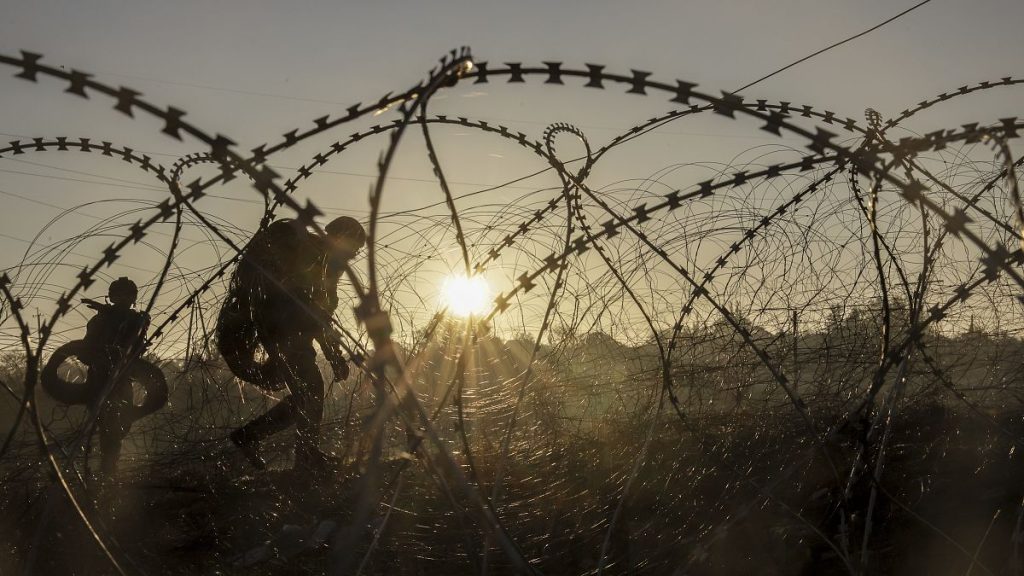The Pentagon announced a new aid package of $425 million in military assistance to Ukraine as Kyiv faces Russian forces supplemented by over 10,000 North Korean troops. The aid includes air defense interceptors, munitions for rocket systems, artillery, armored vehicles, and anti-tank weapons. This brings the total military assistance provided by the US to Ukraine since Russia invaded in February 2022 to $60.4 billion. Ukrainian cities are under constant missile strikes, with casualties reported. Russian use of glide bombs has increased, targeting positions along the front line and cities far from the conflict zone. The arrival of North Korean soldiers near Ukraine’s border adds to the uncertainty.
Slovakia’s Prime Minister Robert Fico has criticized Western military support for Ukraine, accusing European countries of lacking interest in a peaceful resolution to the conflict. Fico believes providing Kyiv with weapons only prolongs the fighting and hampers peace efforts. Fico suspended military aid deliveries to Ukraine shortly after taking office, prioritizing a shift from arms supply to promoting peace. Despite this, humanitarian aid deliveries to Kyiv continued. Regular Slovakians contributed financially to support the Ukrainian military operation, raising significant funds through a crowdfunding campaign for artillery shells. Fico’s views stand in contrast to those of other European leaders who advocate for supporting Ukraine militarily.
Estonia’s Prime Minister Kristen Michal emphasized the importance of providing military aid to Ukraine, citing the war as a battle for freedom. Michal urged European countries to follow the “Baltic example” and assist Kyiv in winning the war. He highlighted the risks of allowing borders to be changed by force, emphasizing the necessity of supporting Ukraine militarily as the only viable option. In 2024, Estonia pledged over €100 million in military aid for Ukraine, with Latvia also committing €112 million towards assistance efforts. The Baltic states have been vocal supporters of providing military aid to Ukraine to help combat Russian aggression and protect Ukraine’s territorial integrity.
The situation in Ukraine remains dire as Russian forces continue to escalate attacks on eastern cities, causing civilian casualties and widespread destruction. The use of powerful glide bombs by Russia has intensified the conflict, targeting not only Ukrainian positions but also cities far from the front line. The influx of North Korean troops near Ukraine’s border adds a new dimension to the conflict, raising concerns about the scale and scope of the ongoing conflict. The aid provided by the US and European countries plays a crucial role in bolstering Ukraine’s defenses and capabilities in the face of Russian aggression and external threats.
The aid package announced by the Pentagon underscores the ongoing commitment of the US to support Ukraine in its struggle against Russian forces and their allies. The military assistance provided includes a range of weapons and equipment aimed at enhancing Ukraine’s defense capabilities and strengthening its ability to counter Russian aggression. The total amount of military aid provided by the US to Ukraine since the start of the conflict highlights the long-standing partnership between the two countries in the face of shared challenges and threats. The aid package reflects a coordinated effort to bolster Ukraine’s defenses and promote stability in the region amidst ongoing conflict and instability.
As the conflict in Ukraine intensifies, the international community faces increasing pressure to provide support and assistance to Kyiv in its fight against Russian forces. The differing perspectives of leaders such as Slovakia’s Prime Minister Fico and Estonia’s Prime Minister Michal highlight the complex and contentious nature of the conflict and the various approaches to addressing it. The contributions of European countries, particularly the Baltic states, demonstrate a shared commitment to supporting Ukraine and safeguarding its sovereignty and territorial integrity against external aggression. The ongoing military aid packages and humanitarian efforts underscore the importance of international solidarity in confronting the challenges posed by the conflict in Ukraine and promoting peace and stability in the region.


